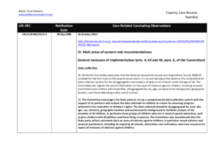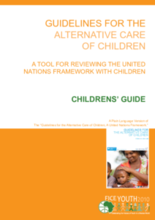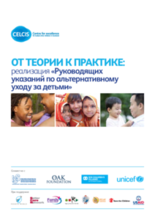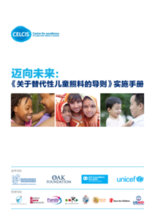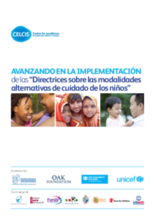Demographic Data
|
Sources: World Bank, UNDP, UNAIDS, DHS 2013 |
Displaying 12591 - 12600 of 14390
This country care review includes the Concluding Observations for the Committee on the Rights of the Child adopted as part of its examination of Namibia’s combined second and third periodic reports at the 61th Session of the Committee held between 17 September and 5 October 2012, as well as other care-related concluding observations, ratification dates, and links to the Universal Periodic Review and Hague Intercountry Adoption Country Profile.
This article discusses the use of standard household surveys as measurement of progress toward development goals, which by design omit the most marginalized groups from data collection.
This RELAF booklet, Application of the UN Guidelines for the Alternative Care of Children, is a child-friendly guide to the Guidelines of for the Alternative Care of Children meant for children and adolescents to inform them of their right to live with their families and make that right a reality.
This booklet from SOS Children’s Villages International was created for young people to explain in a simple manner the main points of the Guidelines for the Alternative Care of Children approved by the United Nations General Assembly in 2009. The booklet helps its young audience think about the principles of alternative care and what these mean for children and families in different situations.
Dans un contexte en évolution, Terre des hommes ne servira plus d’intermédiaire en adoption mais continuera de plaider pour la protection de l’enfant, en favorisant le maintien ou le retour des enfants dans leur famille ou le recours à des prises en charge alternatives comme les familles d’accueil dans les pays d’origine des enfants.
This handbook (in Russian) is designed as a tool for legislators, policy-makers, and all professionals and care providers to support the implementation of the Guidelines for the Alternative Care of Children, endorsed by the United Nations General Assembly in 2009.
This handbook (in Mandarin) is designed as a tool for legislators, policy-makers, and all professionals and care providers to support the implementation of the Guidelines for the Alternative Care of Children, endorsed by the United Nations General Assembly in 2009.
This handbook (in German) is designed as a tool for legislators, policy-makers, and all professionals and care providers to support the implementation of the Guidelines for the Alternative Care of Children, endorsed by the United Nations General Assembly in 2009.
Este manual está diseñado como una herramienta para legisladores, responsables de políticas públicas, y todos los profesionales y provedores de cuidados para apoyar la implementación de las Directrices para el Cuidado Alternativo de la Infancia, avalada por la Asamblea General de las Naciones Unidas en 2009.
Ce manuel est conçu comme un outil pour les législateurs, les décideurs politiques, et tous les professionnels afin de soutenir la mise en œuvre des lignes directrices pour la prise en charge alternative des enfants, approuvées par l'Assemblée générale des Nations Unies en 2009

